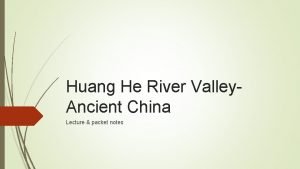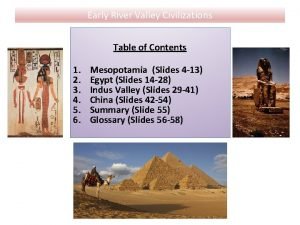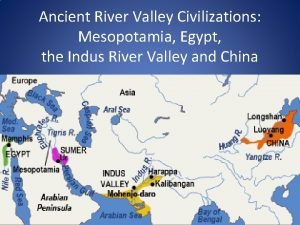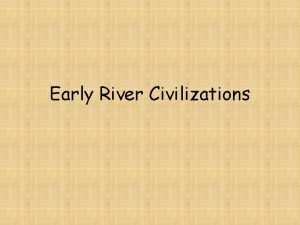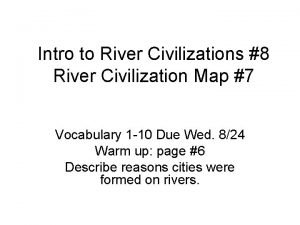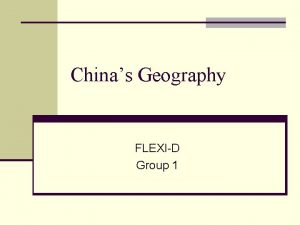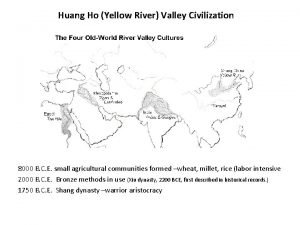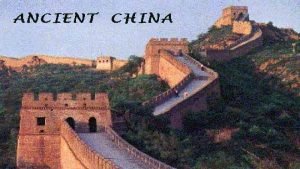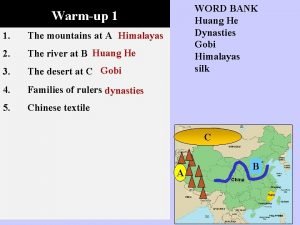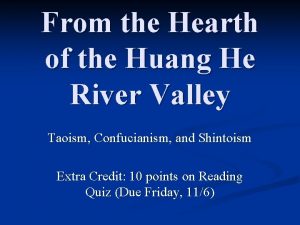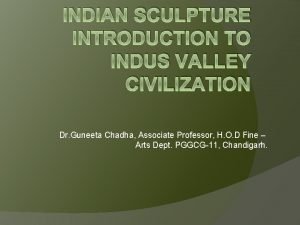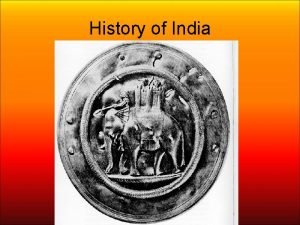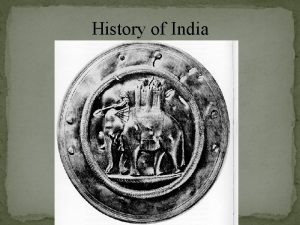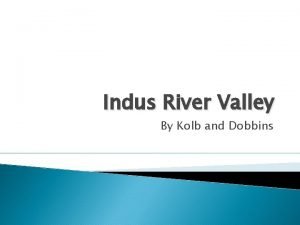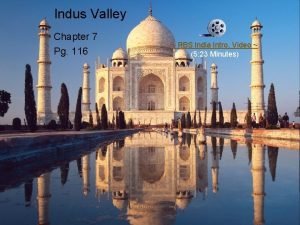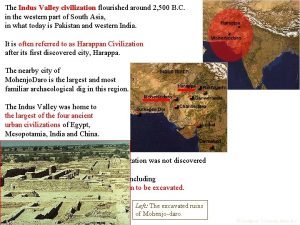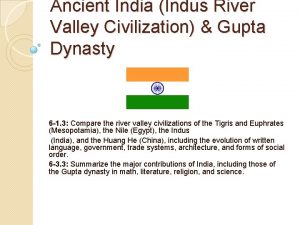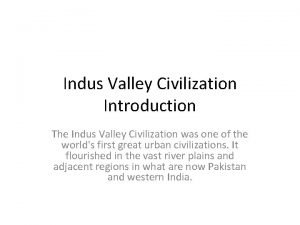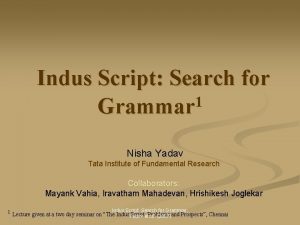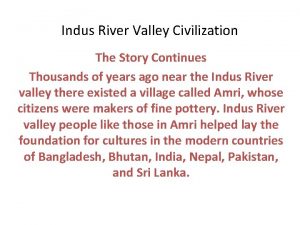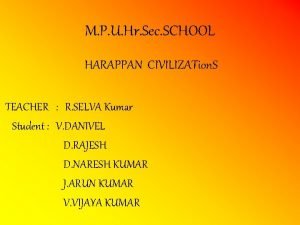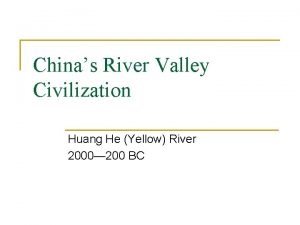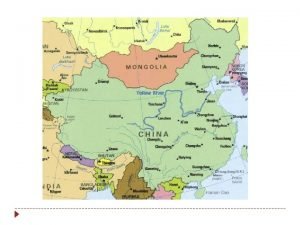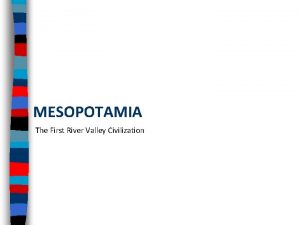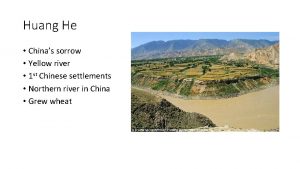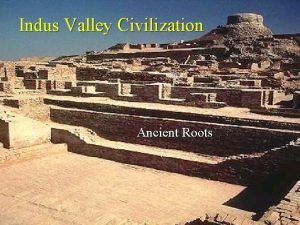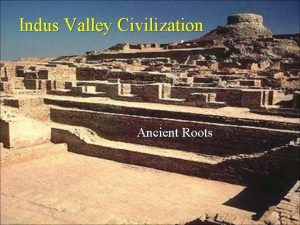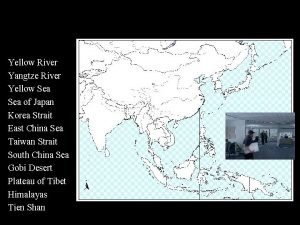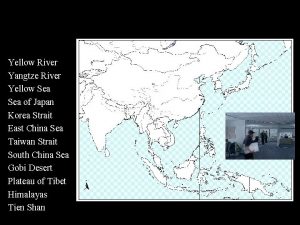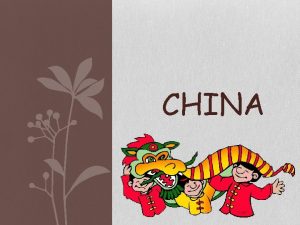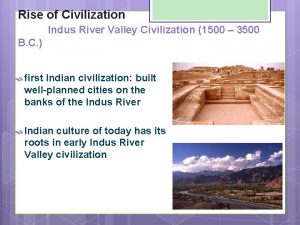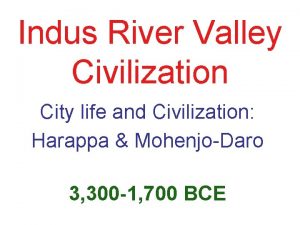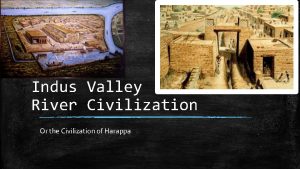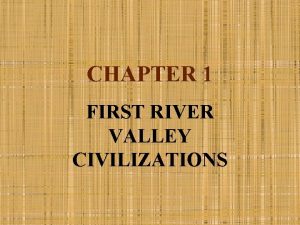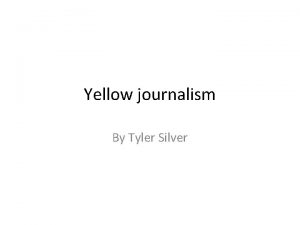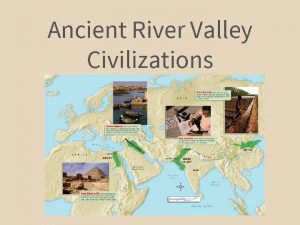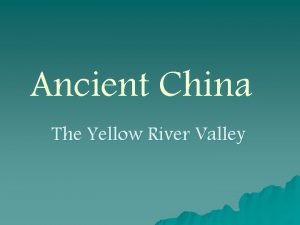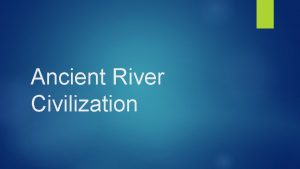Chinas River Valley Civilization Huang He Yellow River






















- Slides: 22

China’s River Valley Civilization Huang He (Yellow) River 2000— 200 BC

Geography of China n Natural Barriers q q q Gobi and Taklimakan Deserts to north and west Yellow Sea, Pacific Ocean, East China Sea to east Himalayas Mountains and Plateau of Tibet to southeast

China

River Systems n Two Major Systems q Huang He (Yellow) n n n In north, flowing from mountains in west to Yellow Sea Called “Yellow” because of yellow silt (Loess, pronounced “loh-us”) Silt-laden river floods every year q q q Chiang Jiang (Yangtze) Further south, flowing from Tibetan Plateau Only 10% of China’s land is suitable for Agriculture. 90% of that land is between Huang He and Chiang Jiang Rivers. n n Good fertilizer Dangerous – “China’s Sorrow”

China n n n n Loess- fertile yellow-brown soil, carried by wind Dynasty- ruling family Mandate of Heaven- heaven granted the ruler the right to rule. People owed the ruler loyalty and obedience Feudalism- mode of production where king provides land, protection, people provide labor, soldiers Pictograph- writing- pictures or objects Ideograph- writing- symbols represent ideas Yin Yang- opposing forces that balance each other


q Xia Dynasty, (semi-legendary) n n Shang Dynasty q q q n Yu--first leader: Mathemetician, engineer Developed Flood Control and Irrigation Systems Increased agricultural output allowed cities to grow even larger Confirmed by Archeological Evidence Came to power with overthrow of last Xia emperor Major Cities: Erligang, Chang-an, Anyang Han Dynasty (longest q q Replaced Qin (which had built the Great Wall) Established Centralized Government n n n q Complex bureaucracy 130, 000 Civil Servants in 18 ranks Yearly Civil Service exams Expanded China with military conquests

Early Chinese Religion n n Gods of nature: the river god, the rain god, the earth god, etc. Most powerful was the sky god, T'ien, the king of gods. Ancestor Worship: Spirits of family ancestors could bring good or bad fortune. “Like troublesome or helpful neighbors” who demanded attention and respect. q Continued to modern times

Confucianism n Confucius (born 551 BC) q q Scholar/Teacher- concerned with building an ethical society Wrote Analects— n n q Five basic relationships: (Ruler-Subject, father-son, husbandwife, older-younger brother, friend-friend) Different rules of behavior depends on which relationship In each relationship, the superior person should set an example for the inferior one. The inferior owed loyalty and obedience Filial Piety: duty and respect children owe their parents, and people owe their ancestors. Not a Religion, but the Ethical System Which became the basis of Chinese Government and Social Order.

Advanced Technology in China n n Coined money (later paper money) Blast furnaces for Iron working q q n n n n Improved iron farm tools increased productivity Better military weapons Highway network (4000 miles) Standardized weights & measures, currency Paper (AD 105) Collar Harness for draft animals 2 bladed iron plow Wheelbarrow Water mills for grinding grain

Other Chinese inventions n Compass, silk, gunpowder, printing, seismograph, water clock, mechanical clock, stirrup, crossbow, ship’s rudder, gun, porcelin, abacus, kite, umbrella, paddle boat

The Great Wall of China

Lao Tzu n n n Semi-Legendary figure, a contemporary of Confucius, founder of Taoism (means, “the way”) believed a person’s conduct should be governed by instinct and conscience “The softest things in the world overcome the hardest things in the world. Through this I know the advantage of taking no action. ”

Lao-Tzu n n “All difficult things have their origin in that which is easy, and great things in that which is small. ” A leader is best when people barely know he exists; when his work is done, his aim fulfilled, they will say…we did this ourselves. ”








 Huang he river valley
Huang he river valley Indus river valley civilization cloze reading
Indus river valley civilization cloze reading 4 river valley civilizations
4 river valley civilizations Longest river in the world
Longest river in the world Ancient river valley civilizations map
Ancient river valley civilizations map Whats chinas longest river
Whats chinas longest river Huang ho valley
Huang ho valley Why did the shang rulers become powerful
Why did the shang rulers become powerful Huang he river
Huang he river Where is the huang he river
Where is the huang he river Hearth of taoism
Hearth of taoism Introduction about indus valley civilization
Introduction about indus valley civilization Economy of indus valley civilization
Economy of indus valley civilization Indus valley civilization trade and economy
Indus valley civilization trade and economy Economy of the harappan civilization
Economy of the harappan civilization Vedic caste system
Vedic caste system Who discovered indus valley civilization
Who discovered indus valley civilization Ancient egypt medicine
Ancient egypt medicine Caste system in indus valley civilization
Caste system in indus valley civilization Indus era
Indus era Under 70
Under 70 Indus river
Indus river Indus valley civilization education
Indus valley civilization education
